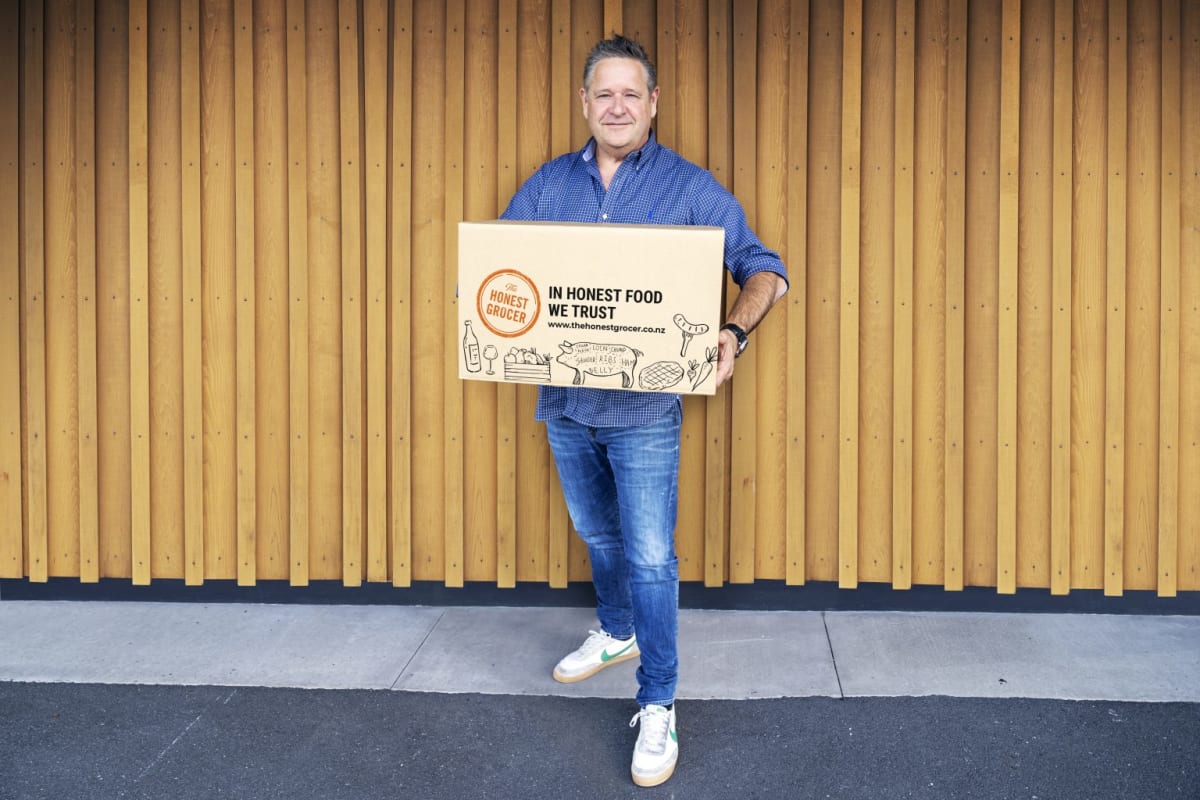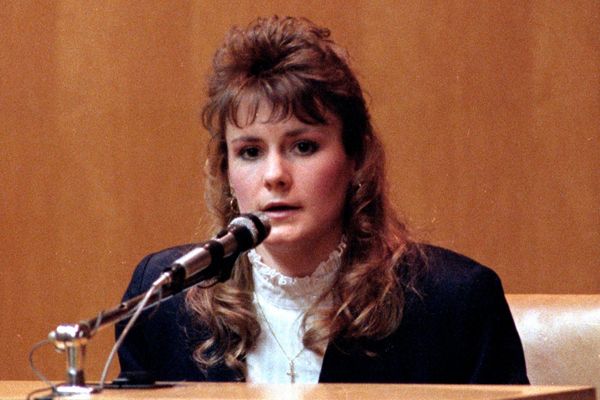
Two new online food brands hailed for bringing range and competition to the grocery market have now closed their doors, unable to grow their market shares against the two big supermarket chains
When Foodstuffs and Woolworths bosses fronted up to the Commerce Commission inquiry into competition in groceries retail, they were anxious to highlight the range of challengers they faced: incoming global giant Costco; the fast expanding Circle K empire; and online grocery stores like Supie, This Local Piggy and The Honest Grocer.
Now that list is a little shorter. This Local Piggy founder Chloe Fong has announced she's shutting up her online retailer, and The Honest Grocer will be subsumed back into a bigger online non-groceries business by its chief executive, Ben Nathan.
A year ago, Newsroom reported Nathan's anger at what he called "bully tactics" against Kiwi producers by the supermarket chains, in a targeted campaign to stop them supplying small competing retailers such as his company. By contrast, Fong was amused to discover the big supermarkets had even heard of her brand.
Yet the two entrepreneurs agreed on one thing: if household shoppers were to get access to a bigger range of affordable, quality food, then the supermarket duopoly would have to be broken open. "I encourage all suppliers to stand strong in the face of any pressure or heavy-handed tactics from the supermarkets," Nathan said at the time.
READ MORE: ► Online grocer faces ‘bully tactics’ from supermarkets ► Talks to fast-track supermarket regulation and break apart stores ► Āpōpō or Costco: The two faces of a new supermarket chain ► Four small retailers hope Commission will order supermarket sell-off ► The Willy Wonka of NZ takes on the supermarkets
However, last week, Nathan wrote to his customers saying The Honest Grocer website would shut down this month, and instead his company would just sell some bundled meats and liquors on the Container Door, his other online business. They would no longer provide an à la carte, pick and mix grocery selection.
And Fong announced her company's closure on its website: "We have exhausted all options of funding, meaning that we cannot continue to deliver the quality of service that sellers and customers deserve."
The retrenchment or closure of the two groceries companies was exactly what the Commerce Commission was warned of before its report this year. Companies such as Night'n'Day, Supie and The Warehouse, backed by suppliers such as Wanaka-based chocolate-maker Giles Barker, said the two supermarket chains had a stranglehold on food retail.
“It's obviously heartbreaking. Honestly we had some amazing customers. And the orders coming in were too many to deliver ... After eight months of knocking on all the institutional investors in New Zealand, I realised that they were probably right and we should end on a high.” – Chloe Fong, This Local Piggy
The commission heard they used everything from control of wholesale and trucking infrastructure, restrictive land covenants and confusing pricing, to the threat of deleting such established New Zealand brands as Sealord from their shelves if they kicked up a fuss.
Precisely, said Fong. The 29-year-old entrepreneur called on Commerce Minister David Clark to set in place a code of conduct and a complaints procedure that would be useful for suppliers and retailers.
"Whatever is done, there should be safeguards in place to prevent loss of revenue if someone complains," she said. "So that supermarkets can't penalise suppliers who complain by never ordering with them."
Government to announce crackdown
Last night, on learning of the closure of the two brands from Newsroom, the minister spoke out. Clark said the supermarket duopoly was making large profits at the expense of everyday New Zealanders. "While it would be inappropriate to comment on the closures of individual retailers, the Commerce Commission’s report is clear: competition in the retail grocery sector is not working," he said.
"As I’ve stressed before, even taking the most conservative estimate, the market study found major grocery retailers were earning excess profits of $1 million a day, well above what would be expected in a workably competitive market."
Since the Commerce Commission published its report in March, MBIE officials had been engaging with key stakeholders in the grocery sector. The minister said the Government would announce its response at the end of this month.
Officials had been exploring how a code of conduct between major retailers and suppliers could be developed, how restrictive land covenants could be banned, and by setting up a dedicated regulator for the grocery sector.
He had told Newsroom last month that he was considering stronger measures including requiring the supermarkets to divest some of their stores. He reiterated that this week: "I have also not ruled out other options which were tabled in the commission’s draft report. This is simply too important not to get right on behalf of consumers."
The Government has repeatedly emphasised its determination to address high food prices by targeting the supermarket chains' dominance. Just this morning, in an important pre-Budget speech, Finance Minister Grant Robertson said the Government was focused on addressing the constraints and forces that were fuelling inflation, including through supermarket competition reform.
Yet despite that commitment, there are some indications the supermarkets have consolidated their position in the past months, unashamedly shifting well-known brands from their shelves to make space for house brands, and using their position as wholesalers to stifle supplies for smaller competitors like Night'n'Day, the Honest Grocer and This Local Piggy.
Supporting independent stores
It was supermarket giant Foodstuffs that offered one of the best and most concise descriptions of This Local Piggy: "An online grocery provider which enables customers to order items from local retailers. The service is a way of connecting communities and keeping suburbs unique by supporting their independent stores."
Chloe Fong came up with the idea in the first lockdown, when she and her wife found they had to cook more Western foods - that was what was available. "So I knocked on the doors of the smaller independent shops around my area and they were really keen to join us. But I personally believe that good food is a vehicle that can unite communities, regardless of beliefs, origins or race. Because everyone at the end of the day just wants to eat well."
Fong was already an experienced software product manager. She was the lead product manager on the NZ Covid Tracer app, the user experience lead on the Z Energy app, and has worked in London with HSBC, Audi, De Beers, and others.
“There is no doubt that the current environment is tough, with higher costs coming in from suppliers almost daily, and immense pressure from customers to keep prices as low as possible.” – Spencer Sonn, Woolworths NZ
She spent a year full-time on This Local Piggy. "And by full time, I mean entrepreneur full time: around 60ish hours a week without pay. Money wise, I put in a bunch of personal savings from my previous job. Let's just say, we would probably be home owners if I didn't start This Local Piggy.
"But I guess a part of being an entrepreneur is not striving for the good work-life balance, to have a big house and some children lifestyle."
Fong said there were two challenges that eventually proved insurmountable: the lack of investors in the consumer grocery space, and the slow, poor quality delivery infrastructure for chilled and frozen food.

She rejected the supermarket chains' suggestions there was thriving competition in groceries retailer. "I wouldn't say it was thriving competition. There are quite a few independent specialist shops around who cater for niches, like artisan bakeries, spice shops, and Asian veggie shops.
"None of these shops would make a dent in the total market share for the New Zealand grocery sector. So I wouldn't say they are thriving, or real competition that can move the big players' bottom line."
‘Immense pressure from customers’
Tough. Competitive. Transparent. Ever-expanding and innovative. These are the adjectives that the two big supermarket companies use to describe the grocery market in New Zealand.
“It’s always disappointing to hear about any business deciding to close its doors," said Spencer Sonn, the managing director of Woolworths NZ.
"There is no doubt that the current environment is tough, with higher costs coming in from suppliers almost daily, and immense pressure from customers to keep prices as low as possible.

“We can only speak for our business but we firmly reject the notion that we asked any of our suppliers to steer clear of either of these competitors. This is not how we operate, and if any behaviour like this came to light, we’d take it incredibly seriously. All of our team are very clear that this would be completely unacceptable."
Sonn said Woolworths supported the reforms recommended by the Commerce Commission after its 18-month study into the grocery retail market, which included a code of conduct, consistent unit pricing and putting an end to restrictive land covenants that stop other brands opening. "We believe there are some strong changes that will ultimately drive an even more competitive and transparent market for the future.”
At Foodstuffs NZ, public relations head Emma Wooster said her company also supported changes such as an industry code of conduct.
"We’re proud of the positive and collaborative relationships we have with our supplier partners and the role we play in making sure New Zealanders get the very best value and choice," she said. "We’re committed to making change as a result of the market study recommendations, and we’re very transparent and accountable about this."
Wooster argued it was rare for anyone to shop exclusively at just one place for food and groceries these days, with many forms of competition in the mix. She gave the examples of food retailers specialising in butchery, bakery, fruit and veggies, independent local grocers, and subscription boxes delivered direct to the door.
"Competition in the NZ grocery industry is ever-expanding and innovative, and it all adds up to a huge amount of variety for a country of our size and population."
‘A really tough environment’
One business leader who knows the challenges Nathan and Fong faced better than anyone is Sarah Balle of Supie, another online groceries retailer. She described it the same way as Spencer Sonn.
"It is a really tough environment that requires continuous support from customers and investors to grow to a level that provides a significant positive impact on more Kiwis," she said last night.
She too had heard many stories from suppliers, she said. She believed independent wholesale supply was a critical (though poorly understood) solution to breaking open the duopoly, not just requiring the supermarkets to divest a few stores. She would also like the Commerce Commission's proposal for a publicly owned "KiwiShop" to be explored further.
"Suppliers have been fantastic and supportive of Supie’s mission, but I understand their challenges in supporting all of the smaller players," she said. "I would love the opportunity to chat with David Clark directly on both of these solutions to put my case forward."
Consumer NZ and the Food & Grocery Council have also come together as somewhat unusual bedfellows, to lobby Clark and other ministers for reform.
Food & Grocery Council chief executive Katherine Rich said the closure of the two retail brands confirmed the New Zealand wholesale market was broken. "It’s hard for an independent retailer to access the range of goods necessary at competitive prices," she said, echoing Balle, Nathan and Fong.
She applauded retailers such as Ben Nathan: "Good on him for giving an online supermarket a crack because going into competition, given the market concentration in New Zealand, is not for the fainthearted or the undercapitalised without scale."
Consumer NZ chief executive Jon Duffy, too, has spent the past couple of weeks trying to understand the challenges facing smaller food retailers, and what that means for shoppers. He's been avoiding the two supermarket chains, which between them own Countdown, Pak'nSave, New World, Four Square, Super Value, FreshChoice, Fresh Collective, Liquorland, Gilmours, Trents and more.
Duffy shopped only at independent Wellington retailers such as Preston's Master Butchers, Yan's Supermarket and the Newtown Greengrocer.
He will document his experiment on the Consumer NZ website this month. "When you go to small places, you actually get yarning to the people who buy the fruit or butcher the meat. And that's actually really fun," he said. "I think back to when I was a little kid and we used to go to the greengrocer and the butcher: Mum would always have a yarn and get some tips. You can have those conversations again.
"You don't really get that experience at the supermarket, it's a bit more sterile."
His two-week experiment had shown him there were alternatives, but it wasn't easy. "I'll tell you what, it costs me more, not just in terms of money, because you're shopping at smaller places that can't offer some of the discounts that supermarkets can when they buy in bulk, but also time and effort and petrol."
He acknowledged the challenges faced by producers and small retailers and said that was why it was so important the Government went beyond retail divestment, and actually required the structural separation of some of the supermarkets' wholesale divisions.
Chloe Fong would have kept trading a little longer, but her US investors were concerned that New Zealand was too small a market for a consumer marketplace start-up in the grocery sector. So, after eight months of knocking on the doors of all the institutional investors, she realised they were probably right. "We should end on a high and essentially shoot the lame horse.
"It's obviously heartbreaking. Honestly we had some amazing customers. And the orders coming in were too many to deliver and sort myself."
She is now interviewing for "normal jobs" while quietly working away with a friend on an idea for a new business in food and agritech. "This is not the end of my entrepreneur journey."







